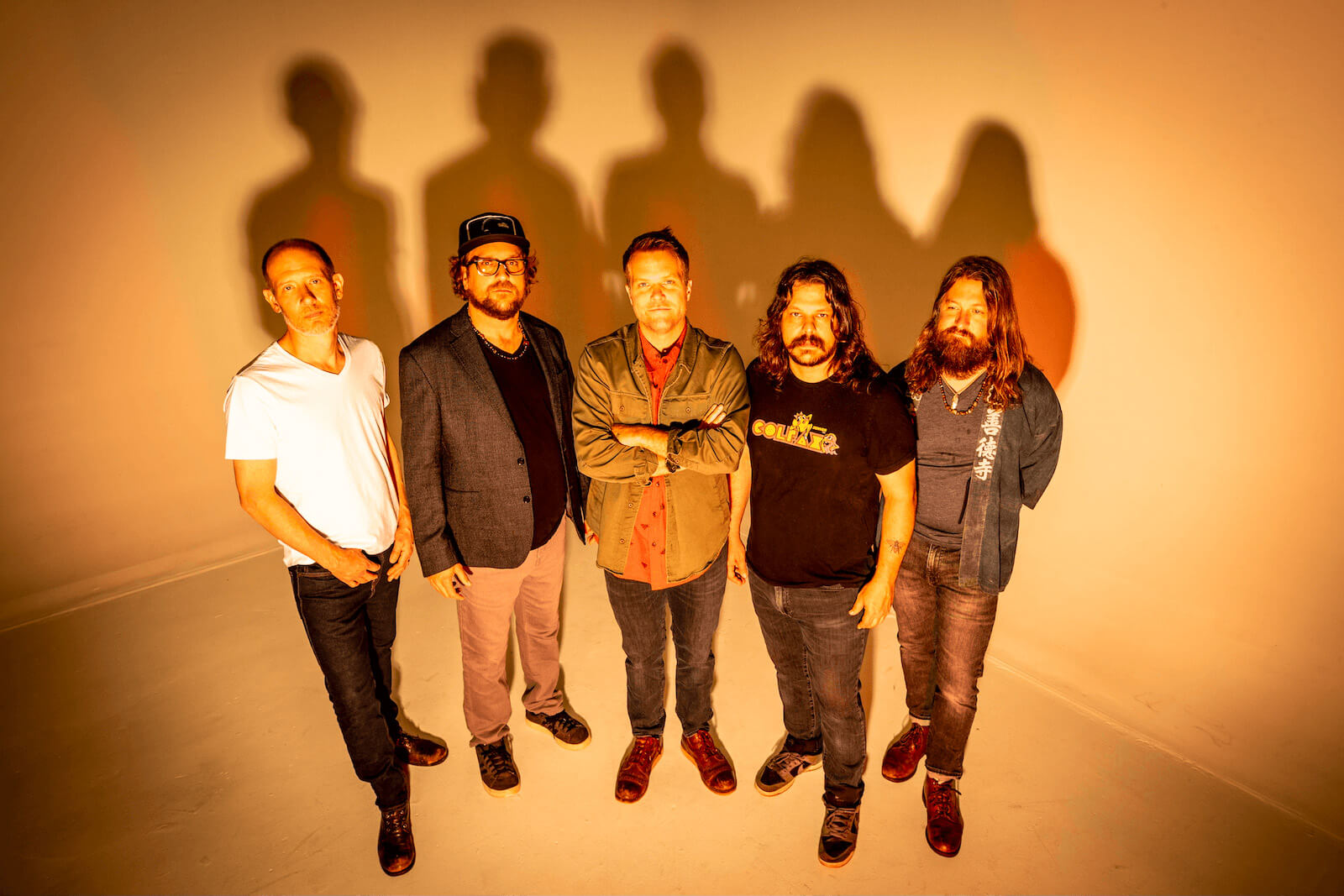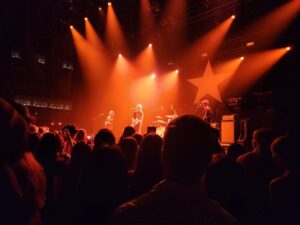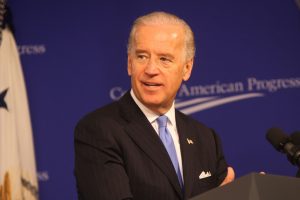It’s notoriously difficult for bluegrass bands to fill out big venues.
Although the genre has its share of rising stars—including artists like Allison Kraus, Trampled by Turtles, and Billy Strings—bluegrass’s limited commercial popularity can put an upper limit on ticket sales. Because of that, its concerts tend to be smaller and more intimate.
But the rules don’t seem to apply to Greensky Bluegrass. On Feb. 9, the first of the band’s two-night run at the Anthem, the 6,000-capacity venue pulsed with activity. Audience members—evenly split between bluegrass veterans and younger, more recent converts to the genre—swayed and stomped nonstop for the almost 3-hour show.
Formed in Michigan in 2000, Greensky Bluegrass gradually made a name for itself as a group devoutly committed to its fanbase.
“Since we’re not the kind of band that’s going to have a number-one hit on the radio, people love our band because there’s a real connection there,” Anders Beck, vocalist and dobro guitar player for Greensky, said in an interview with the Voice.
“We earned that fanbase one at a time, almost. We would play in dumpy bars to like 30 people at the start, and try and play our assess off so next time everybody brings five friends. And over time, that couple of friends turns into a ton of people at the Anthem.”
Organic, word-of-mouth diffusion created a tight-knit community around the musicians, and it was never more obvious than when the band played fan favorites. Moments after Beck began the signature lick to “Past My Prime,” the crowd went ballistic. Boots slammed against the floor and arms slung around strangers’ shoulders as they chanted, “I’ve been walking for hours / But I’m almost where / I said that I would be.”
Still, fans can’t expect any particular song to be on the setlist, no matter its popularity. The band wants every show to be unique—both for their fans and for themselves.
“The worst thing in the world I could possibly do would be in a band that plays the same thing every night,” Beck said. “We’ll play four days in a row, every week, and we won’t repeat a song in four nights. Because there are people coming for multiple shows and, honestly, it keeps it fresh for us.”
The band doesn’t just accomplish this by tweaking the setlist. Sometimes, it invites its openers to join them for a few songs. Molly Tuttle, fresh off her second consecutive Grammy for Best Bluegrass Album, lent her musical prowess to several Greensky songs throughout the evening.
Tuttle’s guitar solo during “Give a Shit” was a standout. She leapt between complex chord patterns with ease, finger picking in classic bluegrass style as her hips rocked with the beat. The rest of the band, although occasionally jumping in for a prominent riff, was content to sit back and enjoy the show.
Still, there were plenty of opportunities for Greensky Bluegrass to show off their own musical pedigree. In an almost three-hour performance, it was common for the band to launch into improvisational sessions midsong—sometimes jamming for seven or eight minutes before returning to the original track.
Halfway through “Until I Sing,” the sorrowful third track off their newest studio album, the usual direct and guitar-heavy melody broke off. The dobro began to lilt a heavy, dissonant refrain and the bass thrummed steadily in the background.
Swirling green and red lights bathed the venue, a stark contrast from the uncomplicated white backwash typical of many bluegrass shows. Minutes into the haunting soundscape, two band members—Beck and guitarist David Bruzza—took turns in the spotlight.
Beck, equally suited to unhurried, syrupy riffs as frenzied shredding, finished a two-minute solo with a head tilt to Bruzza and a mischievous glint in his eye, as if to say, It’s your turn now. Bruzza answered with a knowing smile and a chugging guitar, his fingers blurring on the fretboard in response to his bandmate’s challenge.
Beck credits the band’s improvisational spirit to each member’s musical development.
“A lot of it comes from all of our jam band backgrounds,” he said. “You know, growing up, we were all into bands like the Grateful Dead and Phish—and we also love bluegrass. But it’s sort of the melting of both things that makes sense to us on an artistic level.”
A little improvisation goes a long way. The length of their performance can’t just be credited to their twenty-song setlist, which pulled from the musicians’ decades-long repertoire. More importantly, most tracks ran upwards of six minutes long, with some going well over ten minutes.
While it’s difficult to dismiss the band’s sheer endurance, at their worst, certain songs could drone on, showing little variety in an already-bloated jam session. More often than not, though, the sessions displayed the band’s mastery of their genre and their desire to break from it.
“Originally, the band was pretty bluegrass,” Beck said. “We played around a single mic and did that whole thing. It was a period of time where we kind of had to master the music before we can move on from it.”
“I think it’s important to note that the word ‘bluegrass’ is in the name of the band, but ‘green sky’—if you just break down the words—is the complete opposite of ‘blue grass.’ We’re bluegrass and we’re the opposite of bluegrass, all in one thing.”
It’s this commitment to their own taste, their own desire to move beyond strict genre conventions, that drove Greensky Bluegrass to flourish musically.
Throughout their performance, the band was never afraid of trying something new. Even recently released songs sound strikingly different after months of experimentation.
In “Train Junkie,” the track’s chugging rhythm was interrupted by banjo player Michael Bont who—through some combination of sound effects and playing technique—spat out a riff reminiscent of a funk band’s electric bass. Later, the band dipped its toe into tropical rock with “Who is Frederico,” with Bruzza’s uptempo rhythm guitar perfectly mimicking a steelpan.
“[The fans] want us to take chances,” Beck said. “That steel drum effect could have been not great, and if it fell flat on its face, nobody would’ve been mad at me. But they give us the ability to take risks.”
The band’s willingness to grow lies at the heart of their performance and appeal—and their distinctive relationship with their fanbase is what allows it. Lesser bands may struggle to remain passionate, but after almost 25 years, Greensky Bluegrass shows little sign of slowing down.






